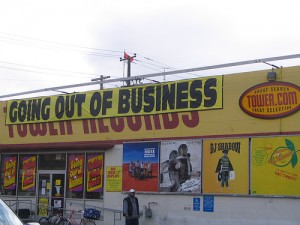Starting a small business is way to living your American Dream. But the market place is often unforgiving. Research shows that less than 5 out of 10 small businesses survive beyond first 5 years. Any budding entrepreneur planning to invest his time and savings into a new venture would not want to be a part of this sobering statistic.

Though there are very little authentic research available, Dun & Bradstreet did come up with a oft quoted research report more than a decade ago which said 88.7% of businesses fail due to management mistakes. Well, that doesn’t really help.
Read on to find out our take on the pitfalls of small businesses due to management mistakes and how to avoid them.
1. No Viable Market
You have this great idea for service or product which you think will change the industry, but have you stopped to think if there are customers willing to pay for it? Build it and they will come school of thought has only let to demise of many small business owners.
Answer this question before plunge into any new business – Why should a customer buy from you and not from a corporate giant or others who have been the business for years? Is it because you offer much needed personalized service or customized solutions or even shorter turnaround time or after sales service. What is it?
Check out this podcast by Steve Blank, a professor in Stanford. He mentions that about 90% of the start ups die because they can’t find the market. So he says, go find out if there’s someone who wants your product or service. Do know what your value proposition is?
As Peter McLean writes in his article Small Business Plan – What is your Value Proposition? – Value proposition is only discovered through depth of thought and rigorous analysis of the market place, competition and existing practices. It involves listening to what the customers are saying and understanding their needs.
Make sure your business offers something that customers would value.
2. Poor Capital Structure and Cash Flow Crunch
It is fairly common for business owners to take up too much debt or underestimate capital required to reach cash flow breakeven, causing many promising ventures to shut down prematurely. You need to be conservative with your financial projections and be sure to have adequate funds (or personal savings) to cover all the sunk costs, till your business becomes cash flow positive. Small business cash flow crisis –Pyschology and not economics is to blame, by Chaitanya Sagar, CEO of www.p2w2.com, tells you how to stay out of cash crunch.
3. Lack of Marketing Expertise
Your customers won’t buy from you if they don’t know you are around. You need to market yourself. And do not make the mistake of treating marketing as an unnecessary expense!
Find effective ways to market yourself through advertising, direct marketing, trade shows and exhibitions. Set up your website and market yourself through internet media such as blogs, forums, email groups and even search engine marketing.
The results are never instant and you need to find the optimum mix that works for your industry. Hire a consultant if you do not have the expertise.
4. Poor Management
Poor management ranks high on what not to do list of business owner. If you lack current and relevant in formation in finance, purchase, selling, production, hiring and managing employees, get help!
When you reach a critical level (about 1 million to 5 million dollars), be sure to put proper management structure in place that will make the work flow
and information flow optimal without your business loosing its dynamism. Also this is the time when you hire suitable managers.
5. Out of touch with customers
Most small businesses are able to have a personal relationship with customers. This is one advantage that huge corporations do not have. You need to focus on good quality products and services and aim on high customer satisfaction levels.
Use customer feedback as free business advice! Ask you customers for feedback and suggestions, evaluate them and incorporate into your business. This mechanism would help you gauge changes in customer tastes, preferences, price sensitivity. Also they are the best source of information of your competitor activities.
Life as a small business owner can be exciting and rewarding, if everything goes as per the plan. You have the advantage of being forewarned about the pitfalls of being in a small business. So go for it!
About the Author: Shaila Rao is a guest contributor at p2w2.com which helps small businesses outsource services like writing, software, graphic design, virtual assistance, business consulting and research. Shaila blogs at p2w2 blog (RSS).
Picture credits: yanec, danesparza



would be great if you can make a post on tax related stuff,implications of incorporation as company,proprietership,partnership etc in India.
Thanks for the suggestion Vivek. Will try my best to cover the topic.
This is one of the best articles I’ve read in a long time. Can you also cover the importance of cash flow over profit for start-ups.
Sure. Will do. There’s one on cash flow here: http://www.p2w2.com/blog/index.php/small-business-cash-flow-crisis-psychology-not-economics-is-to-blame/
Nice article. Expecting some more stuff.
Best Wishes
Guru
One of the most basic reasons businesses fail is that they don’t have a business plan, or they feel that having a business plan is only necessary if they are looking to finance. Incidentally, if you do a business plan you need to cover every single one of the topics you mention above, from Market research, which tells you if your product has a market, to the nature of the management team, to the expected cashflow and what-if scenarios. Once the plan is done, the business then has to review it frequently.
Nicky, I don’t agree with you. Having a plan and reviewing that frequently is a b-school/MBA way of looking at things. Talk to entrepreneurs (even successful ones), many have never written a business plan. But that does not mean there are no plans. It’s a bit unstructured that’s all.
Thanks for dropping by and for writing down your thoughts. Please feel free to disagree. 🙂
More specifically re #1, what is the differentiating benefit that would cause customers to buy from you rather than a competitor.
Another key point: What other reputable businesses also service your kind of client and how can you reduce your per-client acquisition costs by forging a partnership with one or more of them?
Kare, insight generating questions! Thanks! Keep coming back.
@Chaitanya. Fine. But I disagree with you right back. If you have no plan, you have no idea where you are going, how you are going to get there or with whom. Not to mention how much money you need, how much you need to make to be viable.
The saying that if you fail to plan you plan to fail is very true. There are very few businesses that succeed with out a plan… good ideas are a dime a dozen, planlessness is one of the prime reasons many businesses fail – they get distracted, have no idea of where they are heading… rather like a ship without a rudder It has little to do with an MBA – or lack thereof. Even if a plan is two sides of a sheet of paper, you still need a plan. It can be tweaked and adjusted, but it’s still a plan. Bill Gates didn’t earn his billions by happenstance. Neither did McDonalds.
And any business needing venture or any kind of capital investment (most businesses),even a grant who thinks they’ll get any attention without a plan is dreaming. I talk to entreprenuers quite a bit. Those who have plans tend to be more focused. Those who don’t can’t answer the critical questions that will ensure they are successful. It isn’t that it’s not possible to launch a business without a plan. In fact I did just that. But only initially. And I didn’t need to ask for money either. Lastly – reviews are necessary because circumstances change. If you are off plan it’s an opportunity to see why and adjust.
Thanks for the comments Nicky. I understand where you are coming from. I agree that every business has to have a plan though it need not be formal and documented. Keep coming back!
Nice, As I have been actively using p2w2.com, I can trust freelancers from p2w2. They all are qualified and great skilled professional!
This is one of the best articles I’ve read in a long time. Can you also cover the importance of cash flow over profit for start-ups.
Nice Post! In other words these five points can be illustrate as . . .
No clear objectives
Unrealistic expectations and resource allocation
Not sourcing content for the long term
No feedback mechanisms
Do it yourself syndrome
Small business, are not ment to resist,in front of big business, this is one problem. Second would be no goodwill is formed, and the business makes the badwill. The competition is better than you one reason. And making a list you realise that you better don’t start any business and stay home. Good work with the article!
Good comment IT Stuff! Lack of resources makes it challenging but the ride is worthwhile.
Interesting I have to say as a small business owner, I’m guilty of reasons 2 and 4. I kept going in circles, and things were really tight, hemorrhaging financially.
However from losses in the first three years we managed to break even in Year 4 after being advised by ALL the bakers and FINANCIAL SPECIALISTS that I was just digging a hole. Yr 5 we started making profits, all seems like yesterday.
Anyways in retrospect, I’m so becoming convinced that A LOT has to do with the WILL & DETERMINATION to see the business work. If I’d taken that ‘intelligent’ advice I’d probably look at this article from a technical point and say yes 1 and 4 and 10 got me.
Business plan, hmmm its necessary but if this is not coming from within you, I think its only a matter of time.
My personal view is people simply give up to soon, to easy and yes those reasons too
muy interesante lo que usted a publicado en esta pagina web lo felicito haber si visita en estoy sitios, invest on notes
Excellent article. It’s tragic to see a new business owner plow into a new venture “willing to take the risk” but unwilling to do the proper planning to mitigate the risks. Your article is a service to those people who study hard before they take the plunge. Take heed would-be entrepreneurs–factor these things into your small business plan.